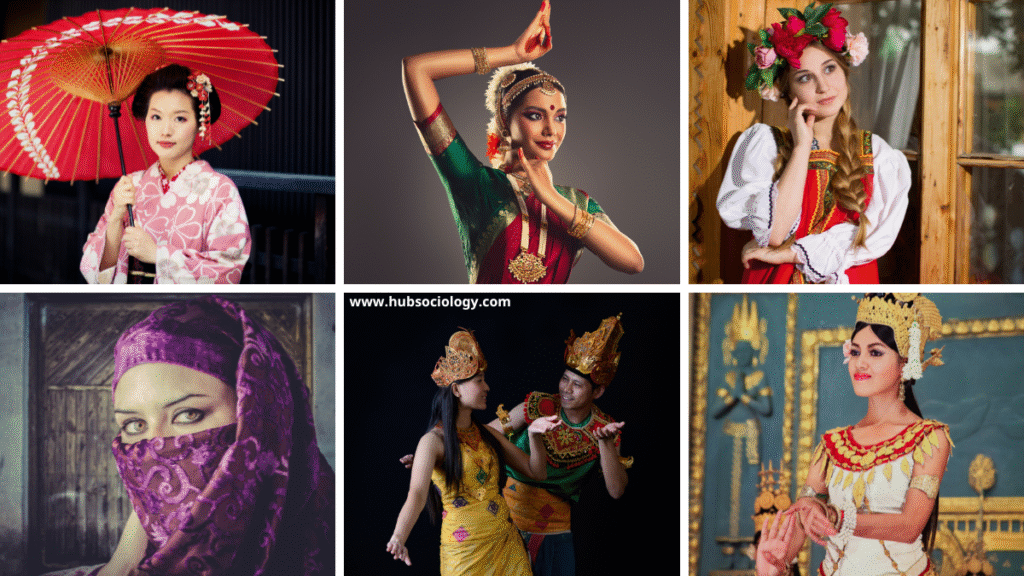Bronisław Malinowski (1884-1942): Founding Father of Modern Social Anthropology
Bronisław Malinowski, a Polish-British anthropologist, revolutionized ethnographic research through his pioneering functionalist approach and immersive participant observation methodology. Often regarded as the “father of social anthropology,” Malinowski shifted anthropology from speculative, armchair theories to empirical fieldwork, emphasizing the study of cultures as integrated systems serving human needs.
His groundbreaking research in the Trobriand Islands (1915-1918) became the gold standard for ethnographic studies. In Argonauts of the Western Pacific (1922), he analyzed the Kula Ring, a ceremonial exchange system, demonstrating how rituals reinforced social cohesion. Unlike earlier evolutionists, Malinowski argued that cultural practices—whether magic, kinship, or economics—exist to fulfill biological, psychological, and social needs (his theory of needs).
Key contributions include:
- Functionalism: Institutions like religion, family, and law function to maintain societal stability.
- Participant Observation: Living among communities to document behaviors holistically.
- Rejection of Armchair Anthropology: Insisting on fieldwork to counter colonial-era stereotypes.
- Cross-Cultural Psychology: Challenged Freud’s universal Oedipus complex using Trobriand kinship data.
Critics (e.g., Lévi-Strauss, Leach) later argued his work overlooked power dynamics and historical change. However, his legacy endures in sociology and anthropology, influencing symbolic interactionism, applied anthropology, and ethnographic methods. Malinowski’s diaries, published posthumously, also sparked debates on ethnographic ethics and researcher subjectivity.
For UGC NET aspirants, his theories on culture, functionalism, and fieldwork remain pivotal, often contrasted with Radcliffe-Brown’s structural-functionalism and Durkheim’s collective consciousness.

1. Bronisław Malinowski is best known for his contributions to which anthropological approach?
a) Structural-functionalism
b) Cultural materialism
c) Functionalism
d) Symbolic anthropology
Answer: c) Functionalism
2. Bronisław Malinowski conducted his most famous ethnographic fieldwork in:
a) Amazon rainforest
b) Trobriand Islands
c) Australian Outback
d) African Savannah
Answer: b) Trobriand Islands
3. Bronisław Malinowski’s approach emphasized the study of:
a) Large-scale historical processes
b) Everyday social practices and individual needs
c) Universal cultural laws
d) Linguistic structures
Answer: b) Everyday social practices and individual needs
4. Which of the following is a key work by Bronisław Malinowski?
a) The Elementary Forms of Religious Life
b) Argonauts of the Western Pacific
c) The Gift
d) Patterns of Culture
Answer: b) Argonauts of the Western Pacific
5. Bronisław Malinowski’s concept of “participant observation” refers to:
a) Conducting surveys from a distance
b) Living among the people studied and observing their daily life
c) Analyzing historical documents
d) Laboratory experiments
Answer: b) Living among the people studied and observing their daily life
6. According to Bronisław Malinowski, the Kula Ring is a system of:
a) Ceremonial exchange of shell valuables
b) Agricultural rituals
c) Warfare strategies
d) Kinship alliances
Answer: a) Ceremonial exchange of shell valuables
7. Bronisław Malinowski argued that magic, science, and religion serve to:
a) Control political power
b) Fulfill psychological and social needs
c) Enforce economic exploitation
d) Promote linguistic diversity
Answer: b) Fulfill psychological and social needs
8. Which theoretical perspective did Bronisław Malinowski oppose?
a) Functionalism
b) Evolutionary anthropology (armchair anthropology)
c) Symbolic interactionism
d) Conflict theory
Answer: b) Evolutionary anthropology (armchair anthropology)
9. Bronisław Malinowski’s theory of needs includes:
a) Biological, psychological, and cultural needs
b) Only economic needs
c) Primary (biological) and derived (social) needs
d) Universal religious needs
Answer: c) Primary (biological) and derived (social) needs
10. Bronisław Malinowski’s work influenced which later sociological approach?
a) Symbolic interactionism
b) Structuralism
c) Postmodernism
d) Rational choice theory
Answer: a) Symbolic interactionism
11. Bronisław Malinowski’s functionalism differs from Radcliffe-Brown’s structural-functionalism in that:
a) Malinowski focused on social structures, while Radcliffe-Brown emphasized individuals.
b) Malinowski emphasized individual needs, while Radcliffe-Brown focused on societal stability.
c) Both rejected fieldwork.
d) Radcliffe-Brown studied only Western societies.
Answer: b)
12. Malinowski’s ethnographic method stressed:
a) Short-term surveys
b) Long-term immersion in the community studied
c) Analysis of historical texts only
d) Laboratory experiments
Answer: b)
13. In Crime and Custom in Savage Society, Bronisław Malinowski argued that law in primitive societies is maintained through:

a) Formal courts
b) Reciprocity and social obligations
c) Religious dogma
d) State coercion
Answer: b)
14. According to Bronisław Malinowski, magic is used in Trobriand society primarily when:
a) There is scientific certainty.
b) Outcomes are uncertain and anxiety is high (e.g., fishing in open seas).
c) Political power is challenged.
d) Economic surplus exists.
Answer: b)
15. Bronisław Malinowski’s study of The Family Among the Australian Aborigines emphasized:
a) Universal nuclear family structures.
b) The variability of kinship systems based on needs.
c) Biological determinism in family roles.
d) The absence of family in primitive societies.
Answer: b)
16. Bronisław Malinowski’s theory of culture posits that institutions exist to:
a) Satisfy biological and derived needs (e.g., food, security, social cohesion).
b) Reinforce class oppression.
c) Promote religious conversion.
d) Isolate individuals from society.
Answer: a)
17. A key criticism of Bronisław Malinowski’s functionalism is that it:
a) Ignored historical change and conflict.
b) Overemphasized harmony and ignored power dynamics.
c) Was too focused on large-scale surveys.
d) Rejected fieldwork entirely.
Answer: b)
18. Bronisław Malinowski’s work laid the foundation for:
a) British social anthropology’s emphasis on fieldwork.
b) French structuralism.
c) American cultural relativism.
d) Marxist anthropology.
Answer: a)
19. In Myth in Primitive Psychology, Malinowski argued that myths function to:
a) Validate social norms and relieve psychological tensions.
b) Document historical events literally.
c) Promote scientific thinking.
d) Replace legal systems.
Answer: a)
20. The Kula Ring, studied by Bronisław Malinowski, is an example of:
a) A ceremonial exchange system reinforcing social ties.
b) A primitive market economy.
c) A religious sacrifice ritual.
d) A form of warfare.
Answer: a)
Bronisław Malinowski: MCQs (21-50)
21. Malinowski’s concept of “institutions” in cultural analysis primarily refers to:
a) Governmental organizations and legal systems.
b) Organized systems of practices that fulfill basic and derived societal needs.
c) Religious doctrines and sacred texts.
d) Economic markets and trade networks.
Answer: b)
22. Malinowski strongly opposed which anthropological approach prevalent in the 19th century?
a) Fieldwork-based ethnography.
b) Armchair anthropology (speculative evolutionism by Tylor/Frazer).
c) Structural-functionalism.
d) Cultural relativism.
Answer: b)
23. According to Malinowski, language in primitive societies primarily serves a:
a) Phatic function (maintaining social bonds).
b) Formal legalistic purpose.
c) Tool for abstract philosophical debate.
d) Means of economic negotiation only.
Answer: a)
24. Malinowski’s Coral Gardens and Their Magic is a study of:
a) Marine ecosystems in the Pacific.
b) The relationship between agricultural practices, magic, and technology in the Trobriand Islands.
c) Colonial impacts on indigenous horticulture.
d) Religious symbolism in gardening rituals.
Answer: b)
25. Posthumously published, Malinowski’s diaries revealed:
a) His personal biases and emotional struggles during fieldwork.
b) Secret political alliances with colonial administrators.
c) A rejection of functionalist theory.
d) Detailed kinship diagrams of European families.
Answer: a)
26. Which prominent sociologist was influenced by Malinowski’s emphasis on individual needs?
a) Talcott Parsons (social action theory).
b) Karl Marx (class conflict).
c) Michel Foucault (power-knowledge).
d) Max Weber (bureaucracy).
Answer: a)
27. Malinowski’s theory of religion differed from Durkheim’s by focusing on:
a) Psychological comfort and individual needs rather than collective solidarity.
b) Universal totemic symbols.
c) The evolutionary stages of religious thought.
d) Religion as an opiate of the masses.
Answer: a)
28. The “biographical method” in Malinowski’s work refers to:
a) Documenting individuals’ life histories to understand cultural norms.
b) Statistical analysis of population data.
c) Studying biological determinants of behavior.
d) Analyzing ancient manuscripts.
Answer: a)
29. Which famous anthropologist was a student of Malinowski?
a) E.E. Evans-Pritchard.
b) Claude Lévi-Strauss.
c) Margaret Mead.
d) Franz Boas.
Answer: a)
30. In Sex and Repression in Savage Society, Malinowski challenged Freud by arguing:
a) The Oedipus complex is culture-specific (absent in matrilineal Trobriand society).
b) All societies repress sexuality identically.
c) Incest taboos are biologically determined.
d) Patriarchal structures are universal.
Answer: a)
MCQs 31-40
31. Malinowski’s list of “seven basic human needs” included all EXCEPT:
a) Reproduction.
b) Aesthetic expression.
c) Nutrition.
d) Safety.
Answer: b) (His needs were biological: metabolism, reproduction, etc.; aesthetics are derived.)
32. The “principle of reciprocity” in Malinowski’s Kula Ring study emphasized:
a) Non-economic exchange to build social alliances.
b) Profit-maximizing trade.
c) Religious sacrifice.
d) Legal contracts.
Answer: a)
33. Edmund Leach criticized Malinowski for:
a) Overemphasizing social harmony and ignoring conflict/change.
b) Rejecting fieldwork methods.
c) Promoting colonial agendas.
d) Focusing too much on individualism.
Answer: a)
34. Compared to Franz Boas, Malinowski was more:
a) Functionalist (studying how cultures meet needs).
b) Historical particularist.
c) Interested in racial typologies.
d) Focused on linguistic relativity.
Answer: a)
35. Malinowski viewed culture as:
a) An instrumental tool for satisfying human needs.
b) A system of oppressive structures.
c) A set of random symbolic practices.
d) Determined solely by ecology.
Answer: a)

36. Malinowski conducted his Trobriand fieldwork for:
a) Three years (1915-1918).
b) Six months.
c) A decade.
d) Intermittently over 20 years.
Answer: a)
37. Malinowski’s work on the Kula Ring contributed to economic anthropology by highlighting:
a) Ceremonial exchange (gift economies) vs. market logic.
b) Primitive money systems.
c) Colonial exploitation.
d) Marxist labor theory.
Answer: a)
38. The term “phatic communion” coined by Malinowski refers to:
a) Small talk that reinforces social bonds (e.g., greetings).
b) Sacred religious chants.
c) Political propaganda.
d) Legal discourse.
Answer: a)
39. Malinowski disagreed with Marxist anthropology because he:
a) Rejected economic determinism, emphasizing multiple needs.
b) Supported capitalist exploitation.
c) Denied the role of conflict in society.
d) Focused only on superstructures.
Answer: a)
40. Malinowski’s legacy in sociology includes influencing:
a) Symbolic interactionism and ethnomethodology (Goffman/Garfinkel).
b) World-systems theory (Wallerstein).
c) Structural Marxism (Althusser).
d) Feminist standpoint theory.
Answer: a)
MCQs 41-50
41. Malinowski’s A Scientific Theory of Culture argued that cultural practices are:
a) Adaptive responses to universal human needs.
b) Random historical accidents.
c) Determined by genetic factors.
d) Always oppressive.
Answer: a)
42. In The Dynamics of Culture Change, Malinowski studied:
a) Acculturation under colonialism.
b) Biological evolution.
c) Revolutionary movements.
d) Urbanization.
Answer: a)
43. Malinowski’s “functional prerequisites” of culture exclude:
a) Art for art’s sake (non-utilitarian).
b) Education.
c) Kinship systems.
d) Economic production.
Answer: a)
44. Critiques of Malinowski’s functionalism claim it:
a) Ignores power inequalities and historical change.
b) Overemphasizes conflict.
c) Is too materialist.
d) Rejects empirical data.
Answer: a)
45. Malinowski’s influence on anthropology includes:
a) Establishing long-term fieldwork as a standard method.
b) Promoting quantitative surveys.
c) Reviving evolutionary theories.
d) Dismissing indigenous knowledge.
Answer: a)
46. The “context of situation” in Malinowski’s linguistics refers to:
a) Understanding language through its cultural setting.
b) Grammatical structures.
c) Universal syntax rules.
d) Political rhetoric.
Answer: a)
47. Malinowski’s analysis of Trobriand magic shows it is used primarily in:
a) Unpredictable situations (e.g., sailing, illness).
b) Daily cooking routines.
c) Child-rearing.
d) Trade negotiations.
Answer: a)
48. Malinowski’s Myth in Primitive Psychology posits that myths serve to:
a) Justify social norms and reduce anxiety.
b) Record historical facts.
c) Promote scientific thinking.
d) Challenge authority.
Answer: a)
49. Unlike Radcliffe-Brown, Malinowski focused on:
a) Individuals’ psychological needs.
b) Social structures only.
c) Universal kinship patterns.
d) Archaeological evidence.
Answer: a)
50. Malinowski’s work is foundational to:
a) Applied anthropology (practical problem-solving).
b) Postmodern deconstruction.
c) Cultural determinism.
d) Positivist sociology.
Answer: a)
Do you like this this Article ? You Can follow as on :-
Facebook – https://www.facebook.com/hubsociology
Whatsapp Channel – https://whatsapp.com/channel/0029Vb6D8vGKWEKpJpu5QP0O
Gmail – hubsociology@gmail.com
